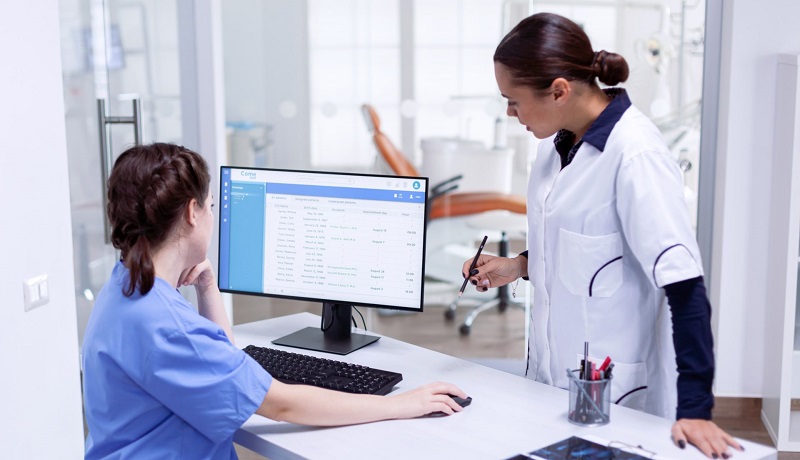Healthcare organizations rely on accurate and reliable information to ensure that they can provide the best possible care for their patients. At any given time, there are usually numerous individual processes occurring that depend on accurate data access. Nevertheless, the expanding volume and growing intricacy of data necessitates the imperative to invest in efficient solutions for data storage and management.
Enterprise Resource Planning (ERP) software works as a central nervous system for an organization. It provides the power to manage and direct the different functions that are vital to keeping an organization running smoothly. It does so by integrating information from other departments into a centralized database. ERP implementation in healthcare organizations modernizes the process as well as operations. It helps reduce cost, improve strategic and financial planning, most importantly, allows healthcare providers to deliver better patient care.
In the next part of this blog, we will discuss the benefits of implementing ERP in the healthcare industry in detail so make sure to read till the end.
Streamline operations
By implementing an ERP (Enterprise Resource Planning) system, your organization can experience improved productivity and reduced overhead costs. This is achieved through the creation of a centralized and easily accessible database that integrates various operational requirements and departments, such as billing, inventory, supplies, finance, and human resources.
Reduce cost and errors
The implementation of ERP software can result in cost reduction through various means, primarily by automating operational processes. ERP systems can be configured to accurately monitor finances and inventory levels, mitigating costly administrative errors and optimizing backend operations such as payroll, accounts, and inventory management. This automation helps streamline operations and minimizes expenses associated with manual processes, leading to improved efficiency and cost savings.
Better planning
ERPs provide accurate financial monitoring capabilities that go beyond tracking patient payments to also include oversight of internal expenditures. This allows providers to identify necessary improvements and gain valuable insights into budgeting, requisition status, and patient visitation analytics. As a result, decision-makers can obtain a clearer understanding of the overall financial health of the organization, enabling informed decisions and strategic planning.
Better patient care
Nurses and medical staff may face challenges in promptly addressing patient concerns, such as scheduling appointments or discussing billing plans, when relying on paper-based and manual systems. However, implementing ERP software for the healthcare industry can simplify this process by storing a patient’s information in a centralized master record that is easily accessible with just one click. This improved access to financial records can significantly enhance the overall patient experience, enabling quicker responses and smoother interactions with healthcare providers.
All in all
From reducing overhead costs through automation and precise financial monitoring to improving the patient experience by streamlining access to information, ERP software offers several advantages to healthcare organizations. Investing in ERP can be a wise decision for healthcare organizations looking for modernizing their processes and achieve better outcomes for patients, staff, as well as the whole organization.

